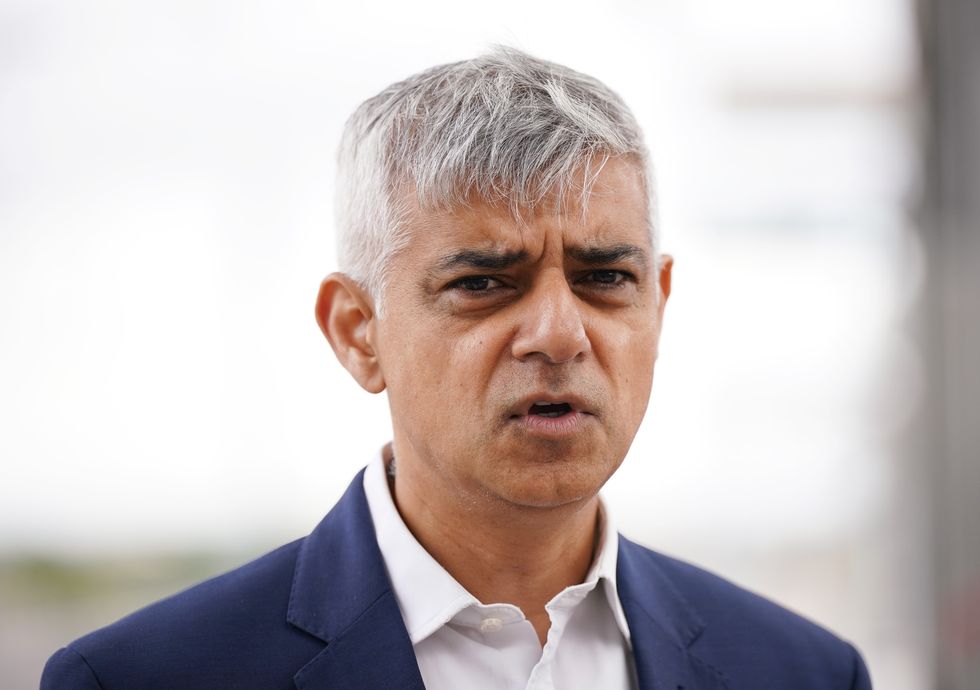Sadiq Khan concerned Channel crossings deal with France 'throws red meat' to people troubled by migration
Sadiq Khan said the Government’s 'tough rhetoric' was 'clearly not working by itself' and putting more boots on the ground would not make much difference
Don't Miss
Most Read
Trending on GB News
The Mayor of London has said he is concerned the new multimillion-pound deal with France to curb Channel crossings is “throwing red meat” to people troubled by migration.
Sadiq Khan said the UK Government’s “tough rhetoric” was “clearly not working by itself”, and that paying more money and putting more boots on the ground would not make much of a difference.
Foreign Secretary James Cleverly declined to specify a target on how much the deal with France on migrants could cut crossing numbers but defended the scale of spending to tackle the issue.
Reacting to the deal, Mr Khan said: “My concern is what the Government’s doing today is sort of throwing some red meat to people who are concerned about migration and not addressing the core issue we’ve had over the last 11 months – 40,000 people crossing the Channel in little boats.
Sadiq Khan
Yui Mok
“So this tough rhetoric clearly isn’t working by itself.
“You’ve got to have close relations with France, colleagues in the European Union, with countries in North Africa, you’ve got to deal at source with those people who are playing on the misery of asylum seekers and refugees in relation to charging them a fortune," he told Times Radio.
Commenting on the deal, Mr Cleverly said: “We want to bring the numbers down significantly. That is the whole point of these arrangements.
“The whole point is that we are trying to spend less money than we are currently having to spend housing migrants.
“Whilst the numbers are unprecedented it is important to recognise that this arrangement has had a positive effect," he told the BBC.
Home Secretary Suella Braverman signs a historic deal with the French Interior Minister Gerald Darmanin
Stefan Rousseau
The Union for Borders, Immigration and Customs (ISU) said the Government’s deal with France to reduce Channel crossings does not address the “sticking points” keeping numbers high.
Lucy Moreton, professional officer for the ISU, said that interrupting migrants to “just let them go to try again” would not have the required impact and nothing in the deal suggested that “the French are going to move away from that position”.
She said: “The sticking points just simply have not been addressed.”
The ISU professional officer added that intercepting migrants so they do not try to get to the UK again was not something the French “have ever wanted to do”, as from the French perspective “they are going the right way and it’s entirely understandable that they are not very keen to interrupt that”.
Ms Moreton told Times Radio the UK needed to deal with the issue itself by resourcing “the court system far better than it has been” in order to process claims in a shorter space of time.
The deal was also criticised by human rights group Amnesty International who said it will lead to “more dangerous journeys and more profits led by ruthless smuggling gangs.
Amnesty International UK’s refugee and migrant rights director Steve Valdez-Symonds said: “This deal is just the same as previous deals – spending money and resources on intercepting and obstructing people crossing the Channel while doing nothing to address their need for safe access to an asylum system.
“The inevitable result will be more dangerous journeys and more profits led by ruthless smuggling gangs and other serious criminals exploiting the refusal of the UK and French government to take and share responsibility.”










